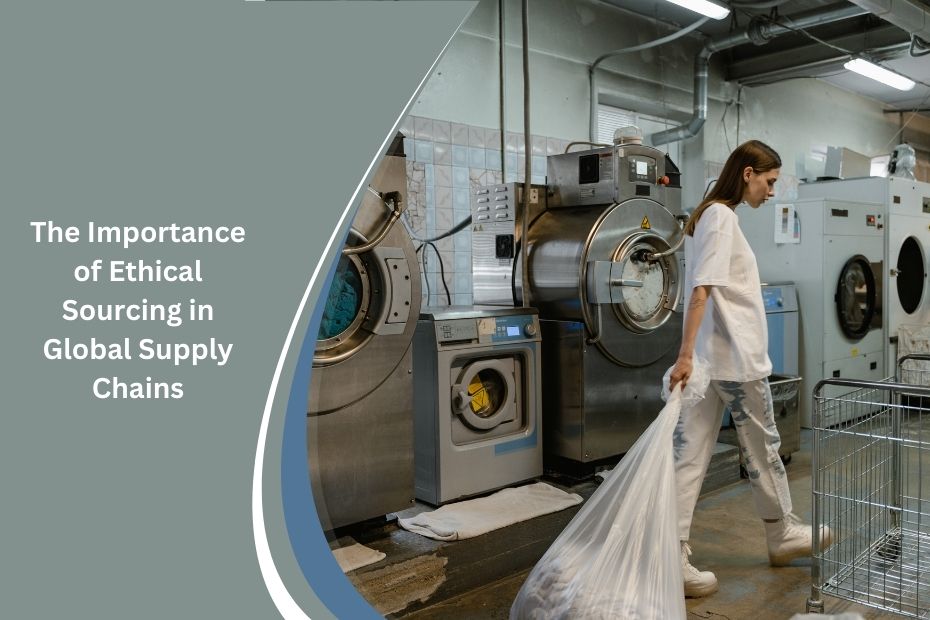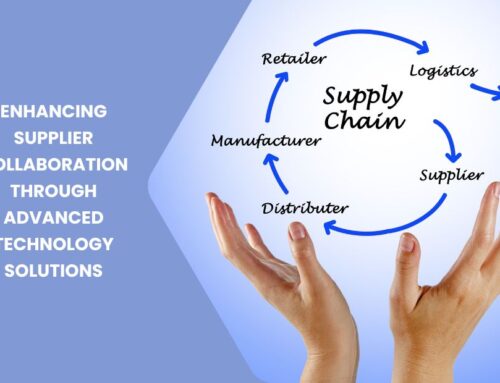Supply chains aren’t just about moving goods—they’re about people, processes, and the values we embed in every link from raw material to retail. Ethical sourcing has become one of the most important levers I use to protect brand integrity, reduce risk, and align business with long-term consumer expectations. With every global shipment or sourcing decision, there’s a ripple effect that touches wages, working conditions, environmental health, and the social fabric of communities. That’s why ethical sourcing isn’t an afterthought—it’s baked into how I select suppliers, audit compliance, and structure procurement strategies. It gives us leverage to reduce exposure, improve performance, and build loyalty with customers who increasingly expect proof—not promises—that we’re doing business the right way.
Clear Standards Drive Consistent Accountability
Ethical sourcing starts with having defined expectations. I work with written supplier codes of conduct that cover everything from labor laws and child labor restrictions to fair wages, safe working conditions, and environmental safeguards. These documents are contractually binding and reviewed regularly. Without them, enforcement is subjective—and that creates inconsistency across regions and supplier tiers.
Beyond compliance, we set clear benchmarks around social and environmental metrics. We monitor worker turnover, energy usage, water consumption, and third-party certification status. These aren’t just checkboxes; they shape procurement decisions and determine whether we deepen or end supplier relationships. It’s not just about what suppliers promise to do—it’s about what we can verify they actually do.
Auditing Without Follow-Through Is Just Optics
Audits matter—but not in isolation. I use them as tools for change, not as public relations shields. We conduct scheduled and surprise audits, both directly and through independent partners. But what matters most is what happens afterward. We issue corrective action plans, set deadlines, and follow up to ensure improvements are made. Without that loop, audits become expensive theatre.
In some regions, especially where legal enforcement is weak, audits alone don’t uncover the full truth. That’s where worker voice programs and local NGO engagement help surface deeper issues like forced labor, harassment, or wage theft. Ethical sourcing requires a willingness to listen beyond official documents. I’ve learned that transparency only works if you’re prepared to act on what you find—and sometimes that means ending a profitable partnership when standards are repeatedly ignored.
Price Pressure Is Not an Excuse for Exploitation
There’s always pressure to drive down cost per unit. But cutting corners on ethics doesn’t save money—it just moves the cost somewhere else. Labor violations, public boycotts, regulatory fines, and recall damage can erode profits faster than any savings from a cheaper supplier. That’s why we don’t reward the lowest bid—we reward total value, including ethical performance.
I’ve shifted supplier scorecards to include ethics alongside cost, delivery time, and quality. A supplier that delivers cheaply but routinely violates labor codes or pollutes the local water supply is a liability—not an asset. We use bonus incentives for ethical leaders in our vendor base, and we give preference in contract renewals to those with clean audits and continuous improvement. Price matters, but not at the cost of principle—or long-term risk.
Traceability Reduces Guesswork and Builds Trust
I want to know exactly where raw materials come from, who handled them, and what the conditions were at every step. That’s why traceability systems have become core to our sourcing operations. From cotton and coffee to cobalt and palm oil, we track ingredients back to source where possible. Blockchain is now helping us lock down tamper-proof records of origin, especially for high-risk commodities.
This level of detail helps meet growing regulatory demands—especially in Europe and North America—but it also builds trust with stakeholders. Retailers, investors, and end consumers are demanding more proof and fewer promises. When we can show a complete chain of custody, backed by third-party certifications and digital tracking, we win credibility that competitors without those tools can’t match.
Sustainability and Ethics Go Hand in Hand
I’ve never seen a supply chain that’s unethical but sustainable—or the reverse. The same systems that reduce labor violations often improve environmental stewardship. Suppliers who treat workers fairly usually care about energy, emissions, and resource usage too. That’s why I approach ethical sourcing and sustainability as one agenda, not two.
We now use supplier assessment tools that score across ESG pillars. Carbon footprint, water recycling, renewable energy usage, and waste diversion are scored alongside fair wage policies and overtime practices. The suppliers that perform well across both areas are the ones I lean into for long-term partnerships. Ethical sourcing isn’t a separate initiative—it’s how sustainability gets executed in real terms.
Consumer Expectations Are Shifting the Buying Equation
Buyers today don’t just want fast and cheap—they want to feel good about what they’re buying. That’s not just a marketing insight—it’s a sourcing imperative. Studies have shown that consumers will pay more for ethically made goods, and they expect brands to prove their claims. Certifications like Fair Trade, B Corp, Rainforest Alliance, and GOTS are more than symbols—they’re buying signals.
That shift is changing how we build product lines and allocate budgets. I’ve pushed brands to include ethical sourcing labels prominently, create transparency landing pages, and link QR codes to audit data or origin maps. These aren’t gimmicks—they’re conversion drivers. When done right, they turn sourcing into a competitive advantage, not just a cost center.
What Makes Sourcing Ethical?
- Fair wages and safe working conditions for all labor
- No forced labor, child labor, or exploitation at any tier
- Environmentally responsible material sourcing and waste reduction
- Full transparency and traceability from raw material to shelf
- Verified audits, corrective action plans, and third-party certifications
- Community support through fair pricing and social investment
In Conclusion
Ethical sourcing has become one of the most critical differentiators in modern global supply chains. It safeguards brand reputation, reduces operational risk, and meets rising consumer expectations with accountability, not rhetoric. I treat it as a baseline requirement—not an optional upgrade. Whether we’re onboarding a new vendor or evaluating a longtime partner, the question is always the same: can we stand behind the way this product was made? If the answer isn’t clear, the supplier doesn’t stay. Ethics isn’t just a label—it’s a lens for how business should be done. And when embedded properly, it’s not a cost. It’s a strategy that pays off.
Explore why ethical sourcing is no longer optional in this deep dive from X (Twitter), where supply chain strategy meets social responsibility.










